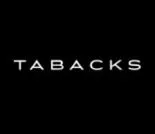This article looks at the impact of the recent ABSA Bank Limited and Another V CSARS judgement on taxpayers in the tax dispute resolution process.
South Africa's Tax Administration Act, 2011 ("the TAA") sets out the processes as to how a taxpayer may deal with an adverse South African Revenue Service ("SARS") assessment: the request for reasons, the objection to an assessment, the disallowance of objection and leading onto the alternative dispute resolution procedure or the Special Income Tax Court, and ultimately the Supreme Court of Appeal ("SCA"). These processes leading up to the SCA may take many years and may be very costly for the taxpayer. Added into the mix is the well-established "pay now, fight later" principle where the taxpayer is required to make payment of the/an amount of tax pending resolution of the dispute. It is possible to apply for suspension of this payment on specific application to SARS if the various motivating requirements/factors are met.
In the past, it has been generally practically difficult for a taxpayer to approach the High Court directly to dispute an assessment or an aspect thereof. Although the TAA allows for the High Court to hear a dispute regarding an assessment in certain circumstances, the High Court has most often been reluctant to hear these matters without exhausting the various internal remedies within the TAA itself.
The recent case of ABSA Bank Limited and Another v C SARS (21825/19) involved the application of the General Anti-Avoidance Rule ("GAAR") and whether the taxpayer (ABSA Bank) was party to an impermissible anti-avoidance arrangement. Where SARS believes that such an arrangement has been implemented, SARS must issue a section 80J notice to the taxpayer notifying the taxpayer of this fact with reasons prior to determining the liability of party in respect of the GAAR. In the current instance, the taxpayer was issued with such a notice. Two decisions of SARS were sought to be reviewed: firstly, SARS' decision not to comply with the request by the taxpayer to withdraw the section 80J notice and secondly, a review of the decision by SARS to issue an assessment (on refusal to withdraw the section 80J notice).
The critical decisions for the court to decide were as follows:
- Is a refusal to withdraw a section 80J notice reviewable at all and if so, on what jurisprudential basis?
- Was the taxpayer a party to an "impermissible arrangement" as contemplated by the GAAR?
- Did the taxpayer procure a "tax benefit" as contemplated by the GAAR?
SARS' view was that it was an anathema to the internal dispute resolution processes crafted by the TAA to be able to simply opt out of these processes and remedies by approaching a court of law directly at the inception of the commencement of a dispute about a tax liability. The taxpayer, on the other hand, was of the view that the dispute concerned purely a point of law, which lends itself to broader considerations than the stance taken by SARS. In addition, the taxpayer was of the view that the guarantee in section 34 of the Constitution of access by a person to a court has not been compromised by a system of internal remedies leading to the special income tax court, demonstrated by much precedent for the courts in dealing with tax disputes on points of law. It was argued by the taxpayer that "a court would regard a pure point-of-law dispute an appropriate rationale to hear and dispose of the controversy in preference to condemning the parties to a protracted slog through all the internal steps towards the Special income Tax Court and then, if necessary, to a court of law that the parties could have approached directly at the outset".
The High Court agreed with the taxpayer and held that the decision by SARS to withdraw the section 80J notice is a decision reviewable under the principle of legality (i.e. on a point of law). The decision to refuse to withdraw the section 80J notice was accordingly reviewed and the section 80-J notice set aside. It was further held that a taxpayer is not obliged to pursue a remedy in terms of the tax legislation only, but may apply to a court of law (the High Court) in exceptional circumstances. In the current case, the taxpayer was entitled to approach the High Court. Exceptional circumstances include a dispute which turns wholly on a point of law.
This judgement will find favour with the taxpayer in specific circumstances when points of law are involved, given the potential to resolve certain legal disputes with SARS far sooner that they would have done otherwise.
The content of this article is intended to provide a general guide to the subject matter. Specialist advice should be sought about your specific circumstances.
